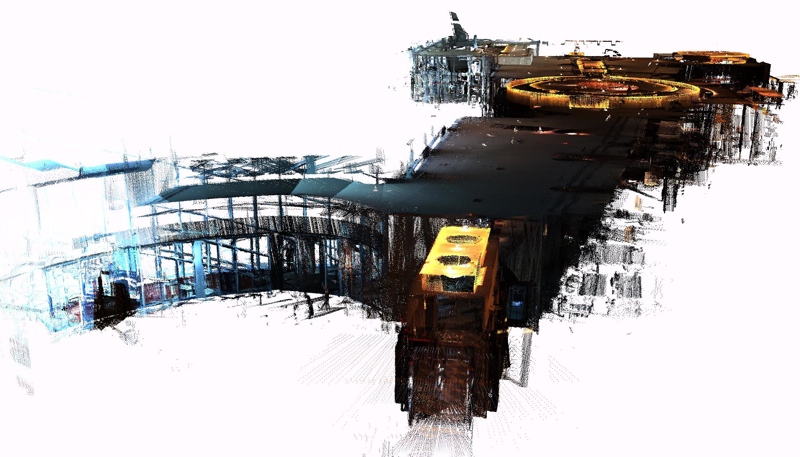As some of you may have heard, I am no longer with SmartGeoMetrics (SGM) and have taken a position as Director of Reality Capture at Ragan-Smith Associates. It’s been an interesting shift. Ragan-Smith has been one of my clients for more than 8 years and I suddenly find myself less a hired gun than an inside man. You would think that during all of that time as a 3D modeler, field technician, hardware provider, and consultant for them that I would have a pretty good idea about how things work there (here!).
The truth is, while nothing I thought was wrong, there were a lot of details that I missed by being on the outside.
Now that I’m finding myself privy to details that most companies choose not to pass onto outside consultants, I am looking at things from a new angle. In short, a consultant tries their best to ask the right questions so that they can amass the intelligence needed to make informed decisions on behalf of the client. The problem is that that data is filtered through the client, and to put it bluntly, the consultant doesn’t know what they don’t know.
One of the first places this scenario presented itself to me was in the question, “Should we buy a scanner or lease on a per job basis?” The obvious first question is, “How often are you using a scanner for billable work?” That seems easy to quantify, and for the sake of argument let’s say that it’s only once a month. In my opinion, that hardly warrants buying a scanner and leasing makes a bit more sense. What most firms do not think to quantify is how many times they should have used a scanner. When you are renting, you tend to not look at scanning as an option unless the total project is large enough to warrant the expense of renting the hardware. This is particularly troublesome when one considers the speed of data collection with most systems today.
Let’s say you have a topographic survey of a commercial lot and it will take a conventional survey crew two days to complete the field work. And let’s assume that if the crew had a scanner it could be done in a day. Given the rental costs, shipping costs, and the time needed to broker the rental contract, there is a pretty good chance that they will just continue with the status quo and send the conventional crew out for two days – especially if they do not have another project to send the crew out on during that second day!
Additionally, the customer will not record this project as a time that they would have used a scanner had they owned one. This, in turn, makes it less likely that they will have one when they find themselves in this same position in the future.
I’d love to use this sentence to espouse some great truth that I now know thanks to this experience, however, I’m less than 30 days on the job and I’ve been humbled enough times in the past to know better! However, there are a few points of note:
- If you intend to use an outside consultant, have some serious discussions about what information you are willing to provide to him or her. When you give the best brain on the planet half of the available data, through no fault of their own they will very likely provide a half-baked plan of action. If you want to keep secrets or firewalls (which are sometimes necessary) then be realistic about the effect that could have on the project as a whole.
- The most successful firms use various reality capture technologies as needed. Many times using multiple technologies on a single project. That is incredibly difficult to do if you 1) don’t own the tech, 2) the job is small, and 3) categorize projects as “scanning” or “drone” jobs.
- Never underestimate the power of culture. Unlike most in this industry, I have not moved around from firm to firm very much. In fact, this is only my third employer since I graduated from college! However, between those firms there was a tremendous difference in cultural attitudes. While you rarely see much time devoted to the topic outside of relationship building exercises and corporate retreats it permeates every action by setting standards and expectations. While there are few of us that march to the beat of our own drummer, I think that most of us try to fall in line and get along with everyone. How that influences the implementation of all of our well intentioned plans is something we need to think about every day; especially if you are the drummer.






